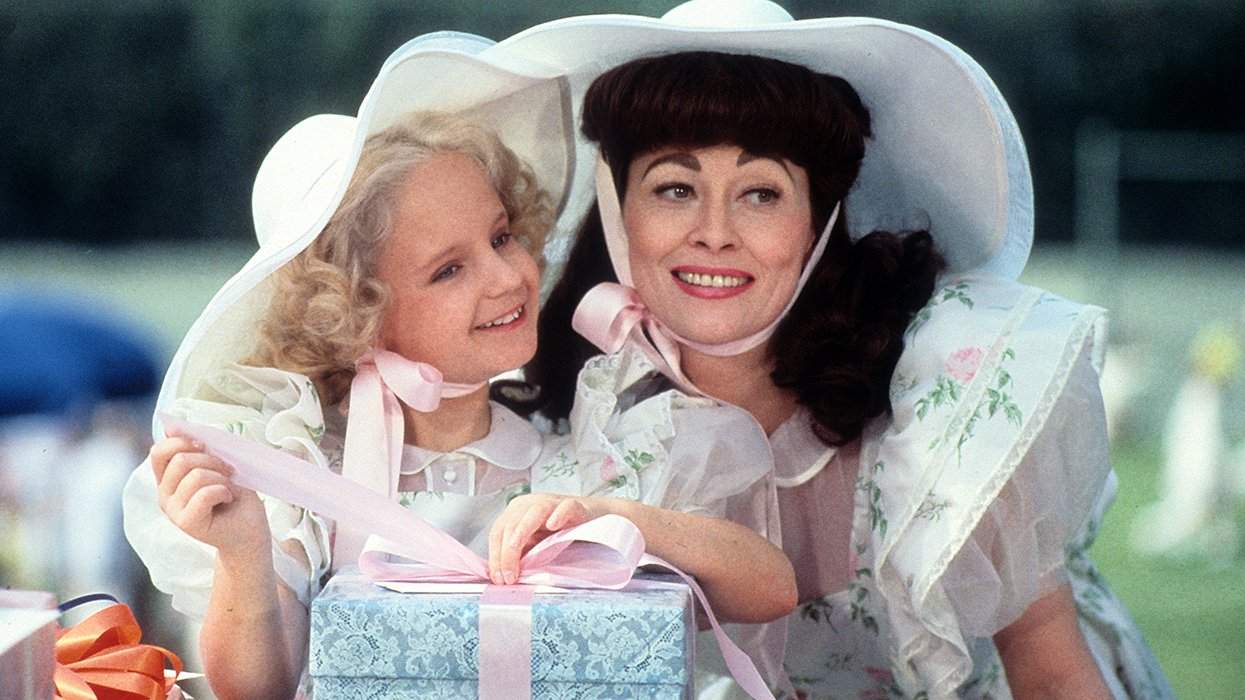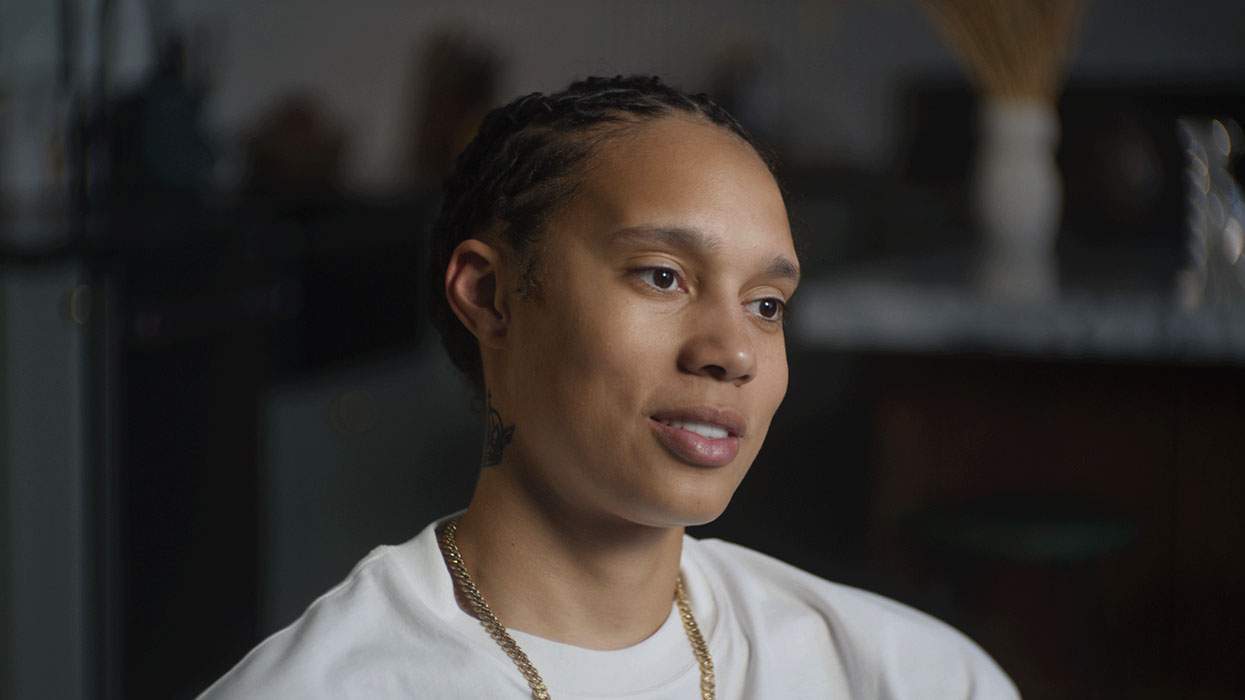I finally got around to watching Faye, the HBO documentary about Faye Dunaway that dropped last month. A longtime friend who has been in Hollywood for quite some time told me once that she was “very mean.” That was famously validated in 1988 when Bette Davis, appearing on The Tonight Show, famously told Johnny Carson basically the same thing.
In 2019, she was fired from the one-woman Broadway show Tea at Five. As we reported at the time, her assistant on the show sued her, saying she terrorized him and repeatedly referred to him as a "little homosexual boy." He had recordings of her making homophobic slurs.
When the documentary starts, the first thing that is addressed, her difficult personality, and it’s done in a way that shows Dunaway can indeed be very difficult. Once she mellowed and they got down to business talking about her life and career, she talked about the root cause of her legendary behavior.
“I am quieter, but throughout my career people know that there were tough times. I don’t mean to make an excuse for myself. I’m still responsible for my actions. But this is what I came to understand was the reason for them,” she explained in the film, referring to issues with her mental health and alcohol that she battled through most of her life.
For those uninitiated about who Dunaway is, a little bit about her background first. At 83, she remains one of Hollywood's most iconic actresses. She grew up in a strict and religious household, and Dunaway's early life was shaped by her father’s military career, which meant that the family moved frequently. In the film, she talks about her father also having issues with alcohol.
Dunaway’s career took off in the 1960s. It was her role as Bonnie Parker in the 1967 film Bonnie and Clyde that catapulted her to stardom. Dunaway's portrayal of the notorious bank robber earned her an Academy Award nomination for Best Actress.
She went on to win the Oscar for Best Actress for her performance as the ruthless television executive Diana Christensen in 1976's Network. I’ve seen that movie several times, and she is riveting — and scary. I’d be afraid of her too!
Her other famous films include Chinatown, Three Days of the Condor, and of course, for gay men everywhere, the rite of passage film Mommie Dearest in 1981.
The Dunaway documentary is directed by French-American filmmaker Laurent Bouzereau. It was Bouzereau’s goal to capture the essence of Dunaway — a woman both revered and criticized throughout her career, whose struggles with mental health have often overshadowed her incredible talent.
Dunaway is fully aware that she has been labeled as "difficult" in the industry, and Bouzereau doesn’t shy away from this aspect of Dunaway's life. "She was very open about it," he said. "And, you know, I have to tell you that I admired so much about her, because she was so honest and so courageous and generous in really going down that path." The documentary doesn’t seek to excuse her behavior but rather to provide context and understanding.
Bouzereau said much of Dunaway’s perceived prickliness stems from struggles with bipolar disorder and depression — conditions that were neither well understood nor openly discussed during the height of her career. "Hopefully, it explains a little bit about what happened to her that has caused this," he said. “In her time, it was not only not diagnosed for many years, but it wasn't talked about, hardly at all."
Now, for gay men of a certain age (and even you younger ones). One of the most controversial aspects of Dunaway's career is her starring role in Mommie Dearest, the 1981 film in which she portrayed the legendary Joan Crawford, based on Crawford’s daughter’s book of the same name. The film, intended as a serious biopic, instead became lambasted as camp, with Dunaway's performance often ridiculed rather than celebrated.
But it was always celebrated in the gay world. Some have pointed to the fact that the drag community was responsible for the film starting to become a gay cult classic back in the 1980s. RuPaul's Drag Race has revived it, in a way, for younger audiences.
Bouzereau and I had a long conversation about this role, since it was so applicable to the gay community, and he discussed Dunaway’s complex feelings about the role, revealing how deeply the film’s reception affected her.
"It is devastating, I mean, at a level that we can't even comprehend, to give so much to a role and have it become a joke," Bouzereau said, underscoring the emotional toll the film took on Dunaway. He added that Dunaway’s perfectionist nature made the experience even more painful. "That's why, you know, something like Mommie Dearest is devastating to someone who always strives for perfection."
Bouzereau’s documentary doesn’t just revisit the mistakes of Mommie Dearest but rather seeks to understand the misalignment between Dunaway and the film’s director, Frank Perry. "She [Dunaway] was creating not an imitation but an interpretation, a creative way into the character," Bouzereau said. "And I think that's where the — you know, the paths never crossed, and you end up having an actor do one film and the director doing another, and that's a disaster in the making."
I told Bouzereau that what surprised me the most was that at certain points, Dunaway seemed humbled, which seemed like such a departure from her reputation. "She's tremendously humble, and I know that will surprise a lot of people," Bouzereau remarked. "You don’t feel you're in the presence of this incredible icon. She’s very modest. And this modesty is juxtaposed against the larger-than-life persona that the public often associates with Faye.”
The documentary paints a picture of a woman who is, at her core, deeply human — prone to the same fears, insecurities, and desires as anyone else. As someone who has endured mental health struggles for years, I could relate. Bouzereau’s hope is that audiences will come away with a clearer understanding of who Faye Dunaway really is: a “brilliant, albeit flawed, artist who has battled her own demons in a world that often judges harshly.”
As the lights came up after Dunaway’s private screening of the documentary, she took Bouzereau in her arms, tears streaming down her face. "You really got me. You really understood me," she told him.
Bouzereau said that he noticed that throughout the screening, Dunaway was writing things down on a notepad. “Oh, my God, I'm to get notes,” he initially feared. “And after she complimented me, I asked her, ‘What were you writing?’ And she said, ‘The names of the people in the film that I want to reach out to and thank.’ And that's really who she is. That's her heart, and that's her soul.”
















Charlie Kirk DID say stoning gay people was the 'perfect law' — and these other heinous quotes
These are some of his worst comments about LGBTQ+ people made by Charlie Kirk.